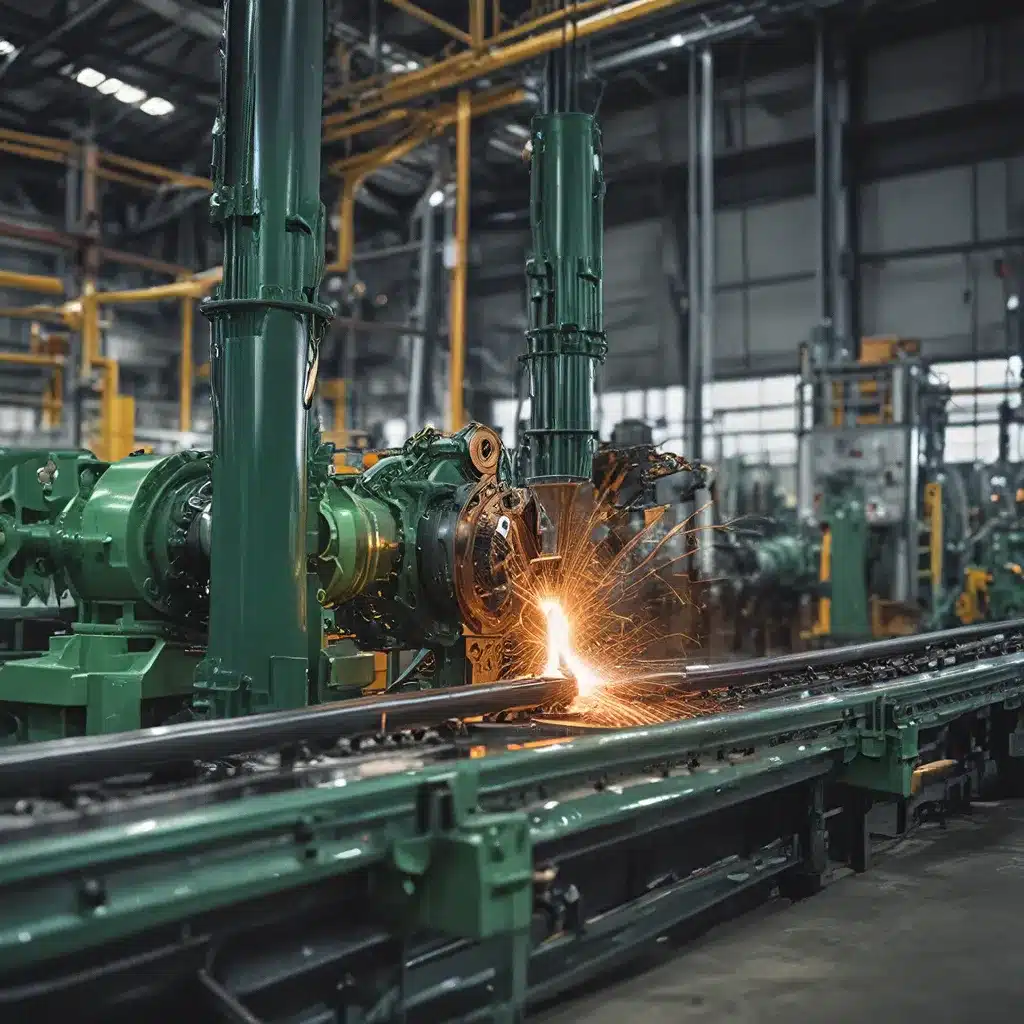
As a manufacturing enthusiast with a deep fascination for sustainability, I’m excited to delve into the realm of energy-efficient manufacturing. Optimizing industrial processes to minimize energy consumption is not only beneficial for the environment, but it can also lead to significant cost savings and improved profitability for businesses.
Embracing the Sustainable Shift
The global push towards renewable energy and environmentally-friendly practices is gaining momentum, and the manufacturing industry is no exception. Businesses are increasingly recognizing the importance of reducing their carbon footprint and adopting energy-efficient strategies. After all, manufacturing plays a crucial role in our everyday lives, from the clothes we wear to the devices we use, and it’s our responsibility to ensure that this sector becomes more sustainable.
One of the primary drivers of this shift is the growing awareness among consumers and stakeholders about the environmental impact of manufacturing operations. People are becoming more conscious of the energy consumption and emissions associated with the products they purchase, and they’re demanding that companies take concrete steps to address these concerns.
Maximizing Energy Efficiency in Manufacturing
So, how can manufacturers optimize their processes to reduce energy consumption and enhance sustainability? Let’s dive into some key strategies that can help you achieve this goal:
Implement Smart Automation and Control Systems
Automation and control systems have revolutionized the manufacturing industry, enabling greater precision, efficiency, and cost savings. By incorporating advanced technologies like Internet of Things (IoT), machine learning, and predictive analytics, manufacturers can monitor and optimize energy usage across their entire operations.
These smart systems can identify areas of high energy consumption, detect inefficiencies, and suggest targeted improvements. For instance, they can automatically adjust equipment settings, optimize production schedules, and minimize idle time, all while ensuring product quality and consistency.
Leverage Renewable Energy Sources
One of the most impactful ways to reduce the environmental footprint of manufacturing is to incorporate renewable energy sources into your operations. Solar panels, wind turbines, and biofuels are just a few examples of the clean energy solutions that can be integrated into your facilities.
Not only do these renewable options lower your carbon emissions, but they can also provide long-term cost savings by reducing your reliance on traditional energy sources. Additionally, government incentives and subsidies are often available to encourage businesses to adopt renewable energy technologies, further improving the financial viability of this approach.
Implement Energy-Efficient Equipment and Processes
Upgrading to energy-efficient equipment and streamlining manufacturing processes can have a significant impact on your energy consumption. This might involve replacing outdated machinery with more efficient models, optimizing equipment settings, or implementing lean manufacturing techniques to minimize waste and enhance productivity.
For example, investing in high-efficiency motors, upgrading lighting systems, or implementing heat recovery systems can result in substantial reductions in energy use. Moreover, process improvements like reducing idle time, minimizing product defects, and optimizing material handling can also contribute to lower energy consumption and increased profitability.
Foster a Culture of Sustainability
Successful energy-efficient manufacturing requires more than just technological solutions – it also depends on cultivating a culture of sustainability within your organization. Engaging and empowering your workforce to participate in energy-saving initiatives can lead to remarkable results.
Encourage your employees to share their ideas and feedback, implement energy-saving practices in their daily tasks, and take ownership of the company’s sustainability goals. Provide training and resources to help them understand the importance of energy efficiency and equip them with the knowledge to contribute effectively.
Measuring and Monitoring Energy Efficiency
To ensure the effectiveness of your energy-efficient manufacturing strategies, it’s crucial to establish robust measurement and monitoring systems. This involves tracking key performance indicators (KPIs) such as energy consumption per unit of production, carbon emissions, and cost savings.
Regularly analyzing this data can help you identify areas for improvement, optimize your processes, and make informed decisions about future investments in energy-efficient technologies. Continuous monitoring and adjustment are essential for maintaining a high level of energy efficiency and driving ongoing improvements.
The Road Ahead
As we look to the future, the importance of energy-efficient manufacturing is only going to grow more pronounced. Governments, industry leaders, and consumers are all pushing for more sustainable practices, and businesses that fail to adapt may find themselves at a competitive disadvantage.
Embracing energy-efficient strategies is not only a responsible choice for the environment, but it can also unlock significant financial benefits for your manufacturing business. By optimizing your industrial processes, leveraging renewable energy, and fostering a culture of sustainability, you can position your company as a leader in the green manufacturing revolution.
The journey towards energy-efficient manufacturing may not be without its challenges, but the rewards are well worth the effort. Ongoing research and innovation in this field suggest that there are even more exciting developments on the horizon, and I encourage you to stay informed and engaged as this dynamic industry continues to evolve.
Remember, every step you take towards sustainability is a step in the right direction. So, let’s embark on this journey together, exploring new possibilities, and leaving a positive impact on the world around us. The future of manufacturing is bright, and it’s up to us to make it a sustainable one.
Firewinder can help you on your path to energy-efficient manufacturing. Their innovative solutions and expert guidance can assist you in optimizing your industrial processes and reducing your environmental footprint.

